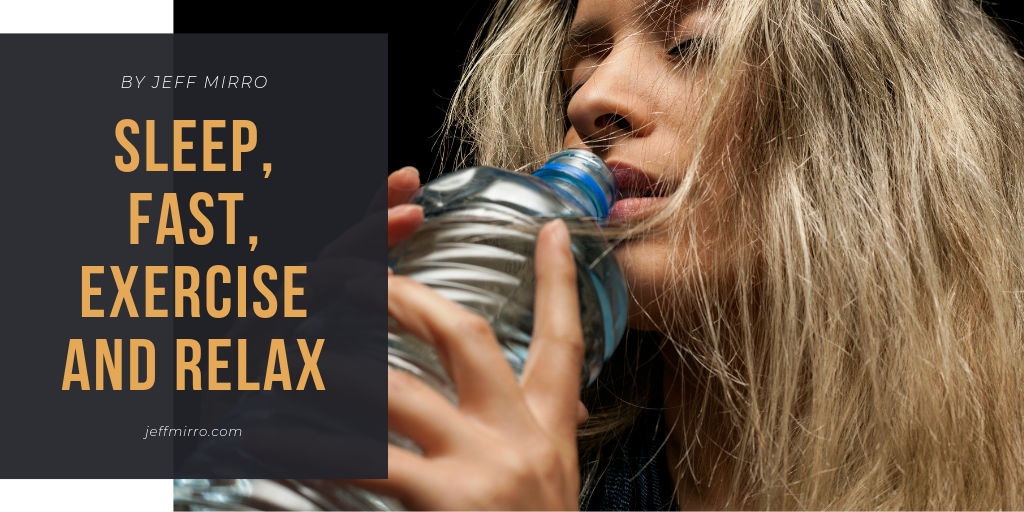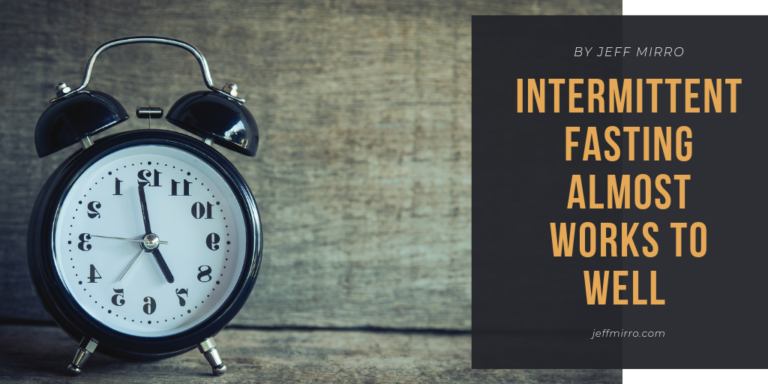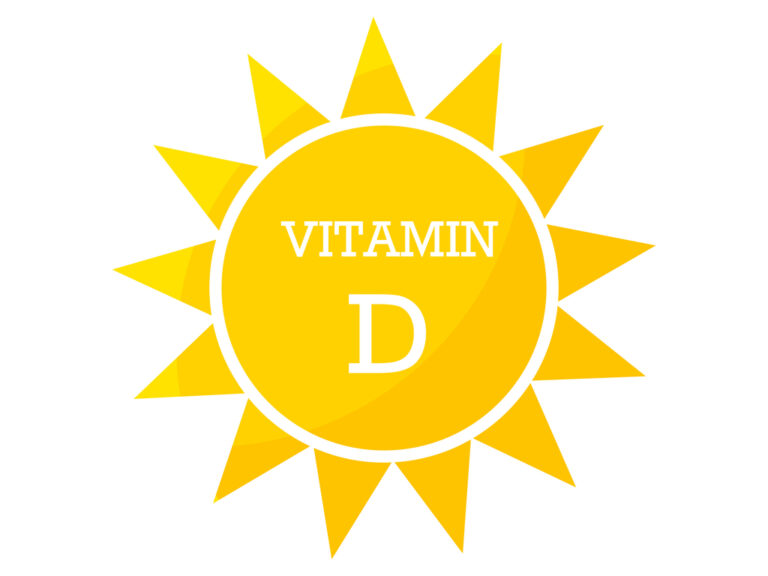There are four main components to achieving good health, what I would call the four pillars of health, and these also apply to weight loss: Getting enough quality sleep on a nightly basis, eating a healthy diet while living a fasting-focused lifestyle, getting regular exercise and enough physical activity on a daily basis, and keeping your stress levels low.
Sleep is the Most Critical of the Four Pillars of Health
The first pillar of good health is getting enough sleep because, without sleep, everything else falls apart. The only caveat to this is that fasting sometimes allows many people the ability to sleep less and still feel well-rested. But beyond that, sleep is of the utmost importance. No matter who you are, I’d recommend getting anywhere from 7-9 hours of sleep per night. I personally have found that I need closer to nine hours on a nightly basis, but this is an area that I have struggled with for years, and have only recently improved on. The sad part is that I have no trouble sleeping when I decide to go to sleep. It’s always been a decision for me to just stay up and keep watching TV or reading. But I am fully aware of the importance of sleep, and that it is the very foundation of good health. Everything else we talk about in terms of health and even weight loss pretty much depends on getting enough quality sleep. So I cannot overemphasize the fact that you need to make sleep a priority. It will go a long way towards your mental health as well.
Living a Fasting-Focused Lifestyle
The whole theme of this blog is of course fasting, and more specifically, intermittent dry fasting. Right next to sleep, living a fasting-focused lifestyle is the most important thing you can do for your health. Read any post on my blog, or do some outside research on your own if you’d like, and you’ll quickly see the powerful benefits of fasting. You will see just how critical it is that you eat your meals in as small of an eating window as possible, whether it’s one meal, two meals, or three meals (I don’t recommend more than two in a day). The best thing you can do for your health and weight loss efforts is to shrink your eating window down to as small of a time period as possible. I’d recommend no longer than eight hours for an eating window, but 6, 4, or even 1 is much more preferable for both weight maintenance and to experience the healing effects of autophagy. Once you get used to intermittent fasting, you can move on to intermittent dry fasting (not consuming anything, even water) and then weave in some sporadic extended fasts of 36-48 hours for even more powerful autophagy and serious fat burning. Getting good nutrition when you do eat is, of course, critical as well. I recommend eating a diet very low in carbs and focused around meat, with some vegetables and fruit as well. It’s somewhat similar to a ketogenic diet, but really veering towards a carnivore diet, with no sugar, grains, or processed foods, while also eliminating foods high in oxalates such as nuts, seeds, and legumes.
Daily Exercise
As I’ve said in a previous post, exercise is very important for your overall health, much more so than it is for weight loss, although it can’t hurt there either. Working out for 30-60 minutes a day, with a mixture of cardio and strength training, along with my personal favorite type of exercise, calisthenics, is a great thing you can do for your body. You will build muscle and stay fit by doing daily full-body workouts, and it will be a small aid in your fat burning and weight loss efforts as well. Fasting and a healthy, low-carb diet are much more important when it comes to losing weight. But still, I recommend exercise for anyone who is able to do it. Just like with sleep and fasting, you will find mental health benefits with exercise too. It helps to clear your mind and also plays into my last pillar of health, which is lowering the level of stress in your life.
Lowering Your Stress Levels – Easier Said Than Done
Much like sleep, I’ve found lowering the level of stress in my life to be a much greater challenge than diet and exercise. I’ve always been solid in those two areas. But not getting enough sleep and experiencing too much stress go hand in hand and it can create a vicious cycle. I’ve recently found meditation to be helpful in this area. Practicing mindfulness and having a grateful attitude and appreciation for the people and even things in your life that make you happy is key. But I am far from an expert in this area, and I have a long way to go to improve to a point where stress is not a major negative in my life. Truthfully, what I’ve found for myself and for others is that limiting stress in your life is easier said than done, and nearly impossible in the modern world. It’s more about your reaction to stressful things and stressful events. If you can deal with the stressful things that occur in your life in a peaceful way, so that they don’t mentally crush you, make you enraged, or get you depressed, and you’re able to bounce back quickly, then you will be much better off. Stress has a way of building up inside you if you don’t deal with it properly or find a way to cope with it in a more positive manner on a daily basis, and it can manifest itself physically over time, so keeping your stress level low is critical to your overall well-being.
Putting the Four Pillars of Health All Together for Optimal Health
So try to keep stress out of your life to the best of your ability, get in some daily exercise, live a fasting-focused lifestyle while eating minimal carbohydrates, and get enough sleep every night. If you take care of these four crucial pillars of health every day, you will see your health, well-being, mental clarity, and overall happiness improve immensely in a matter of just a few weeks. Start on the path to optimal wellness today.




